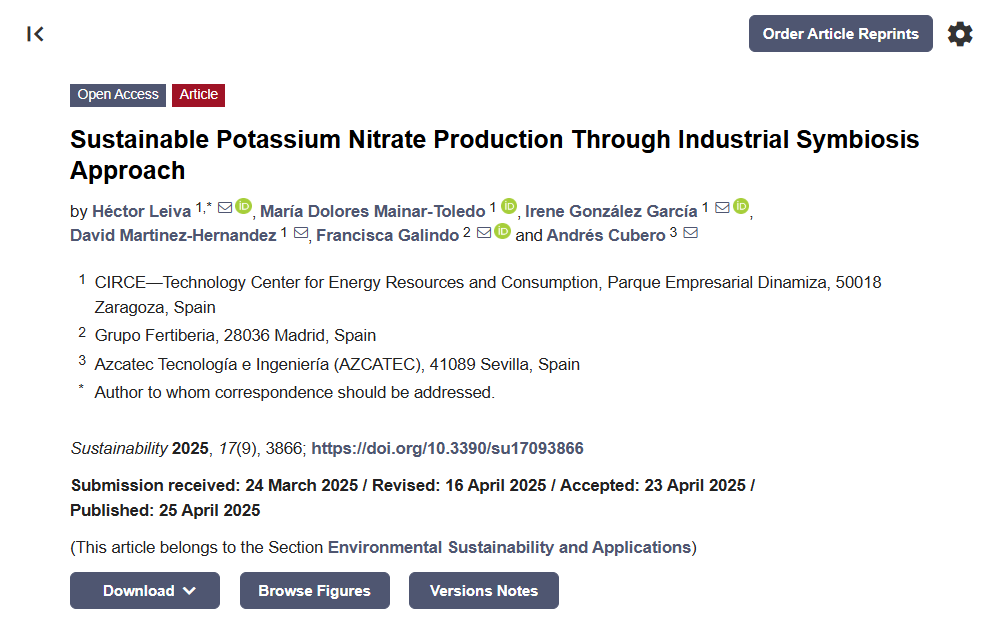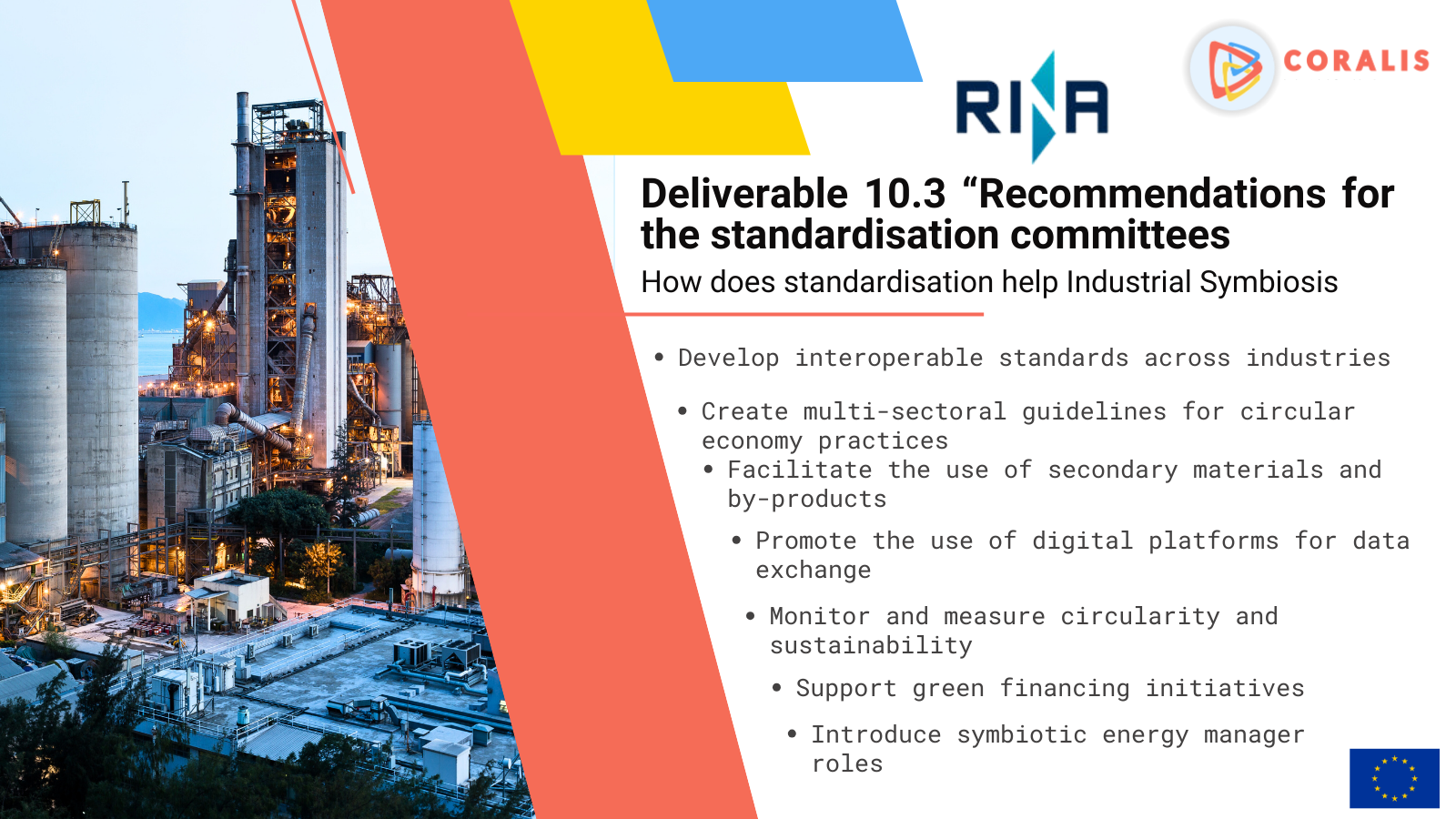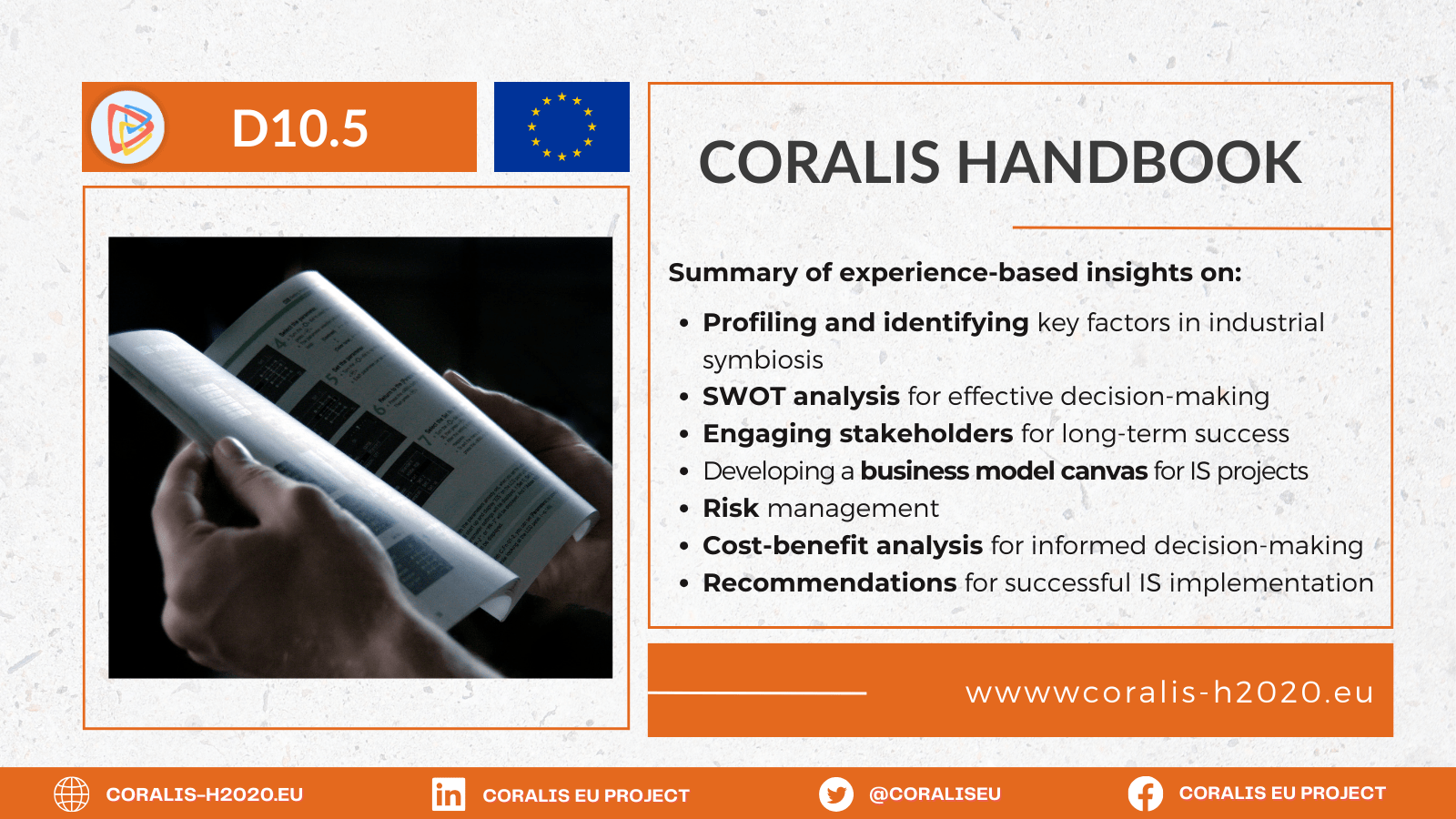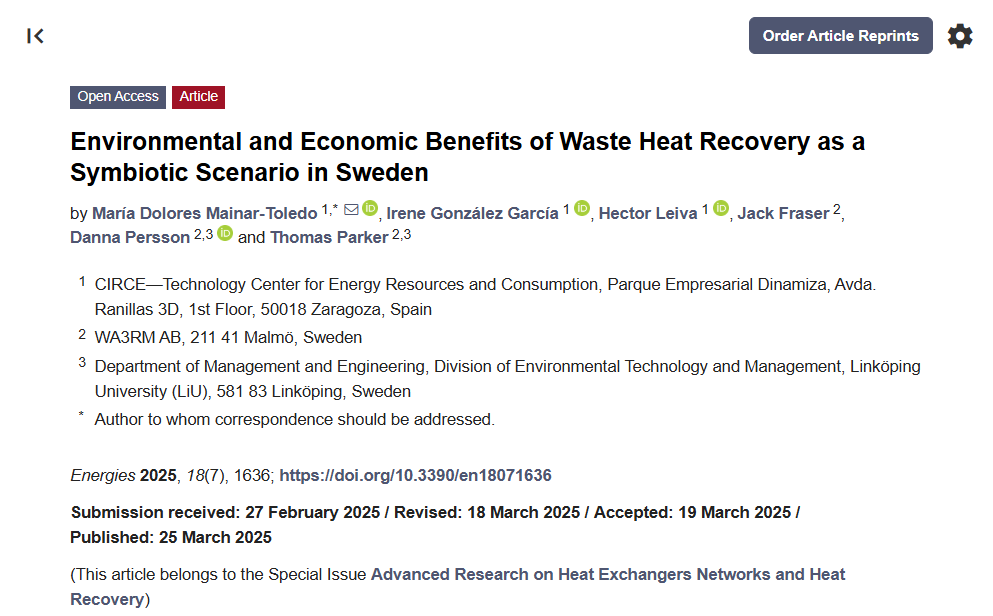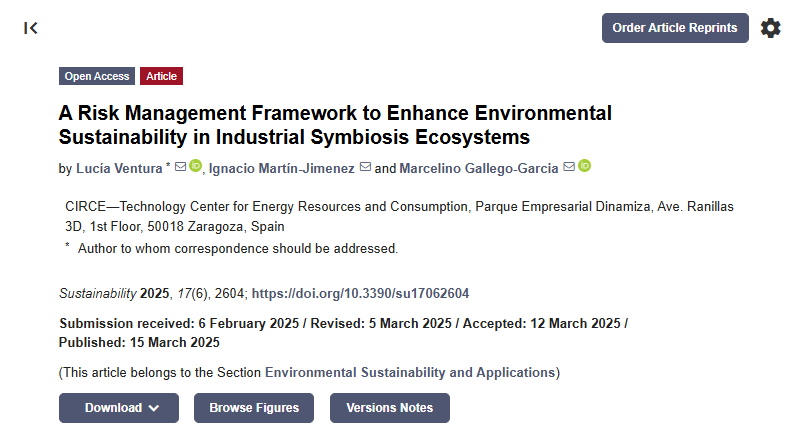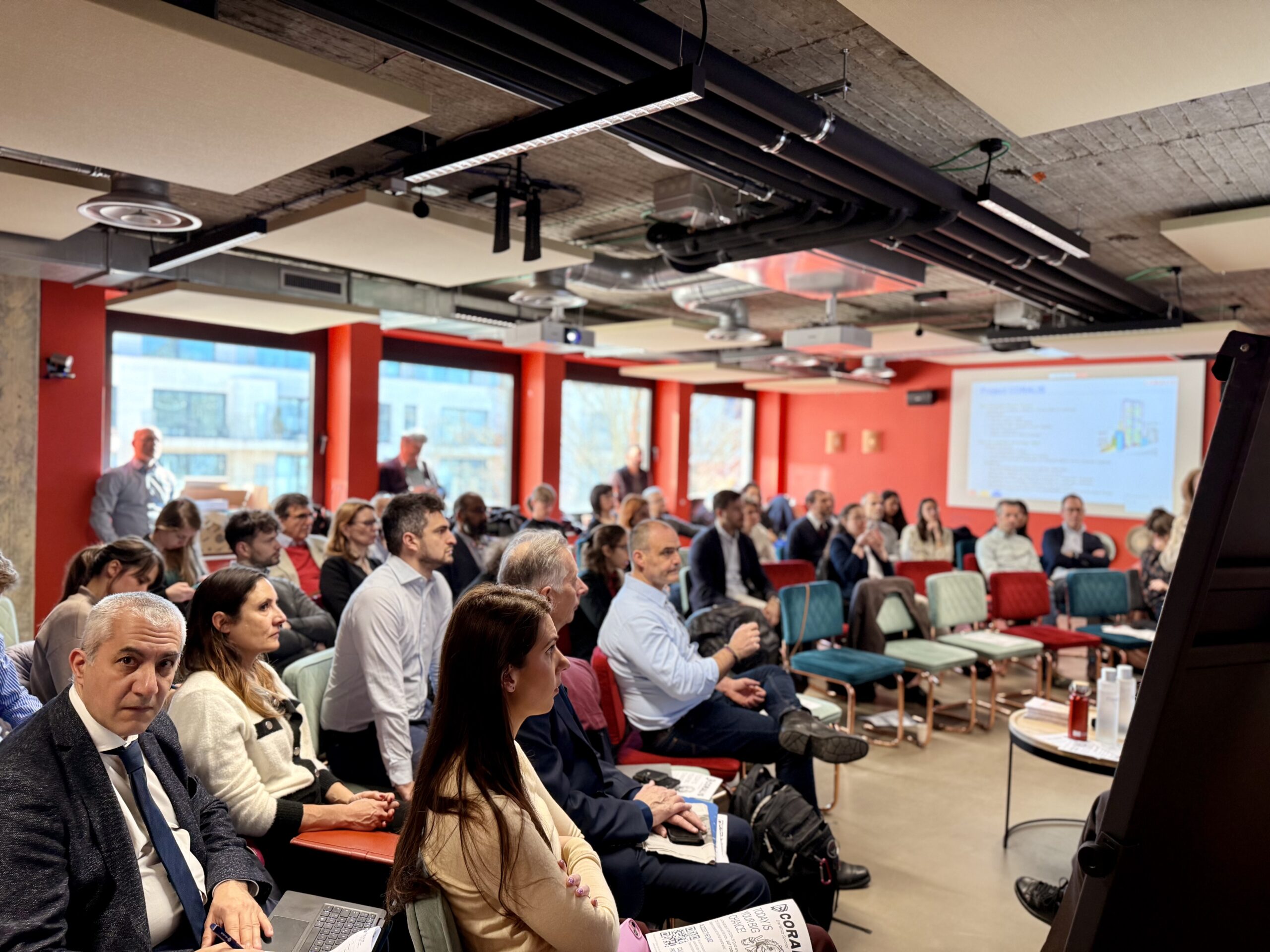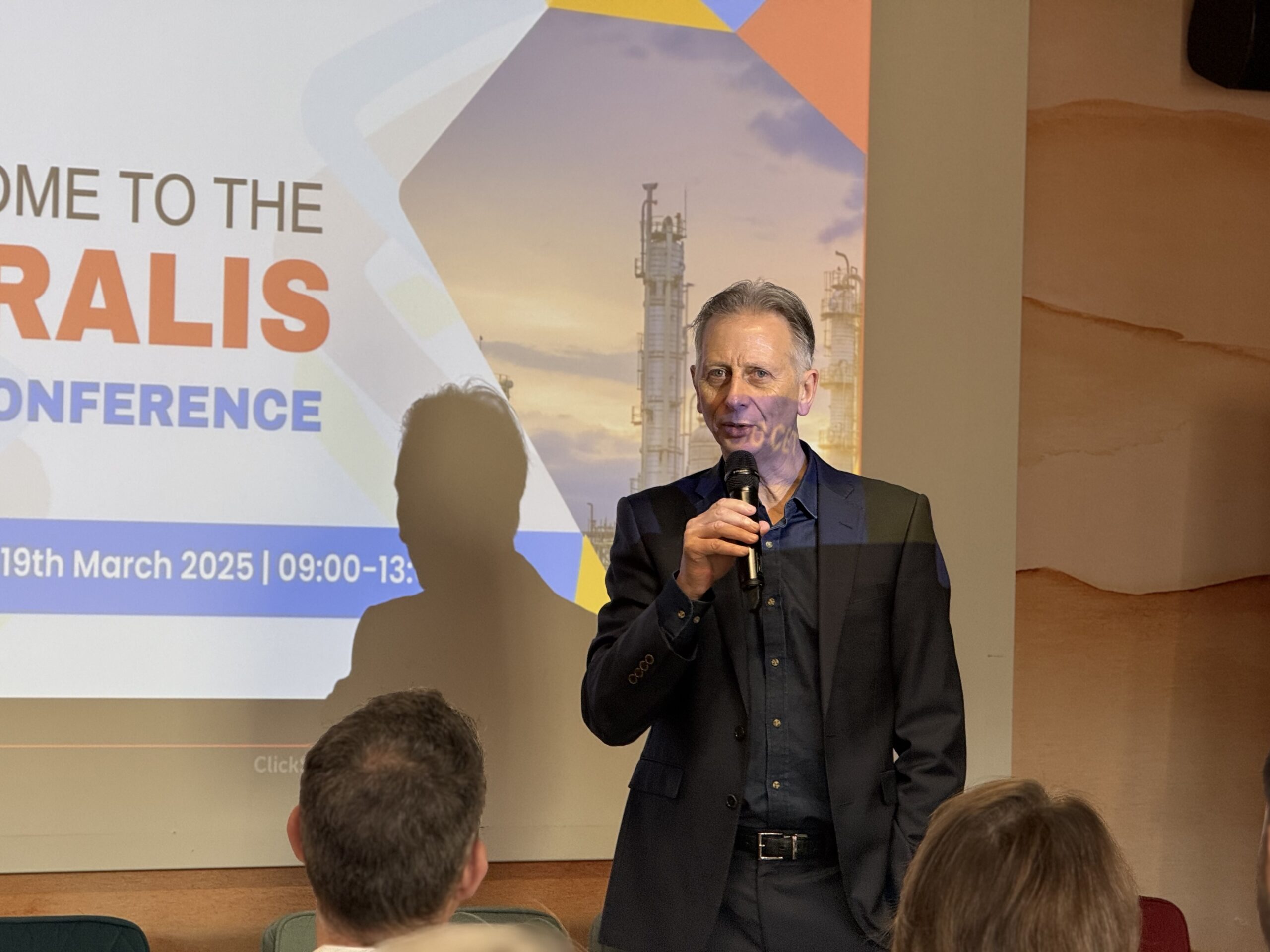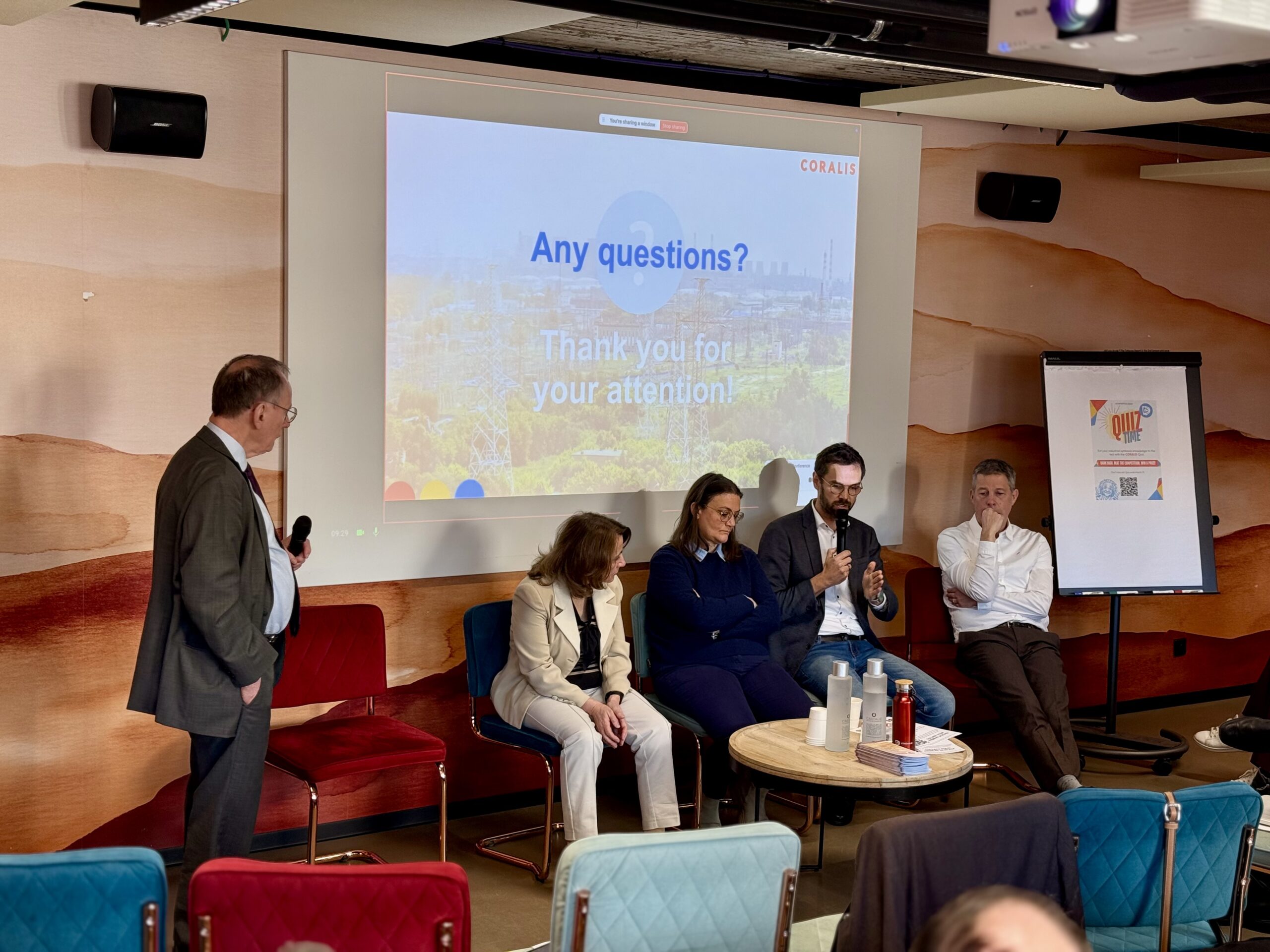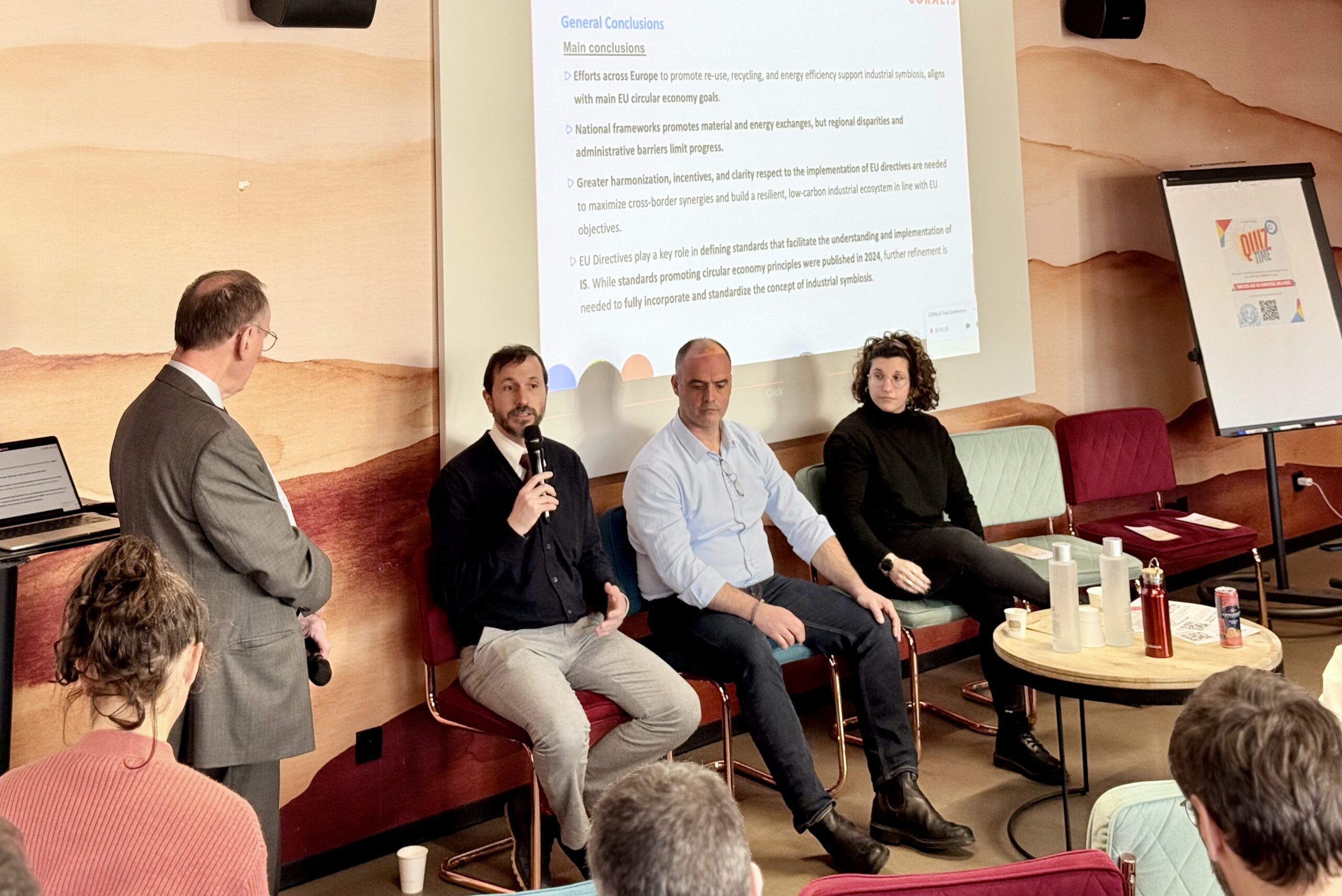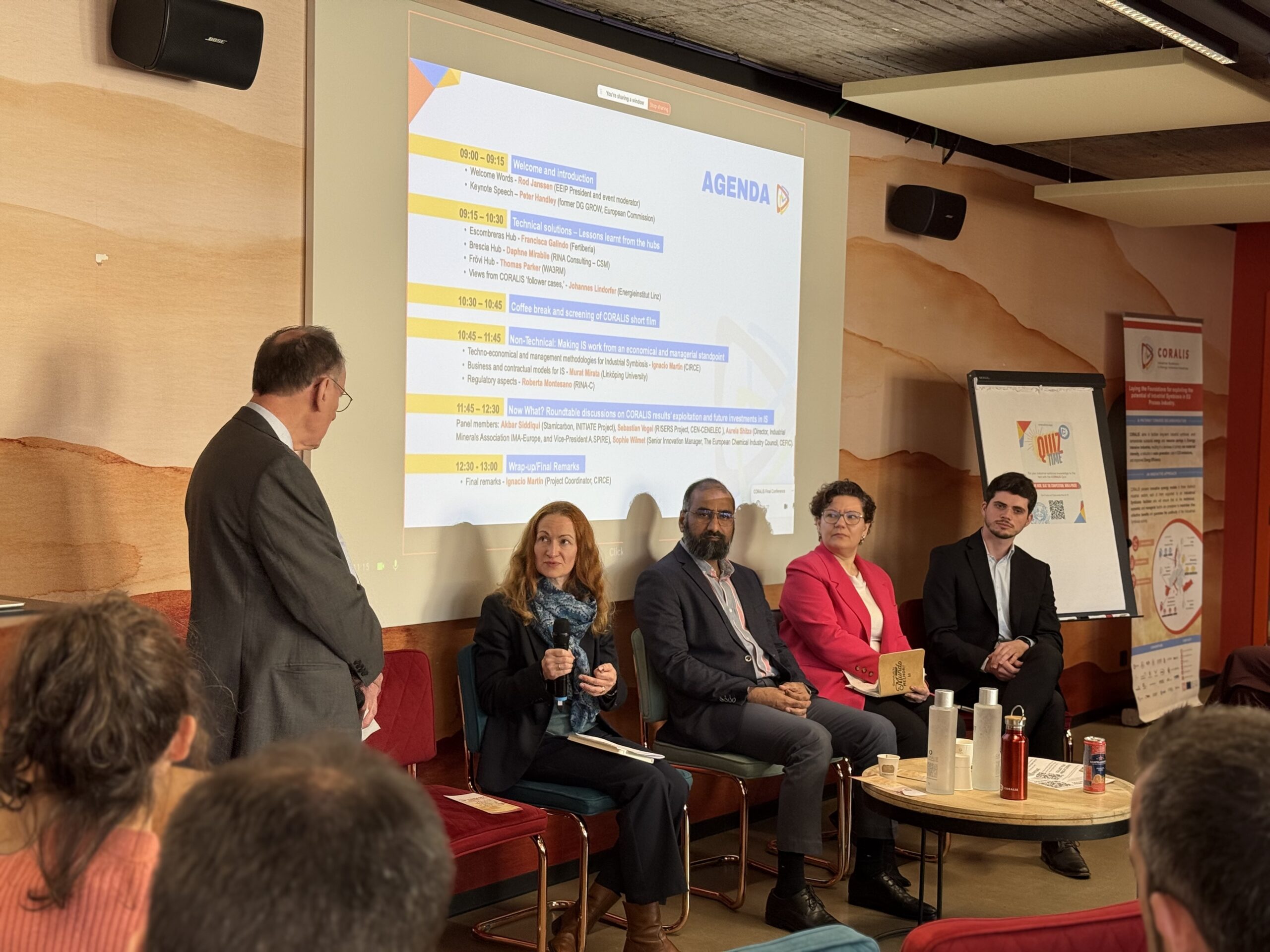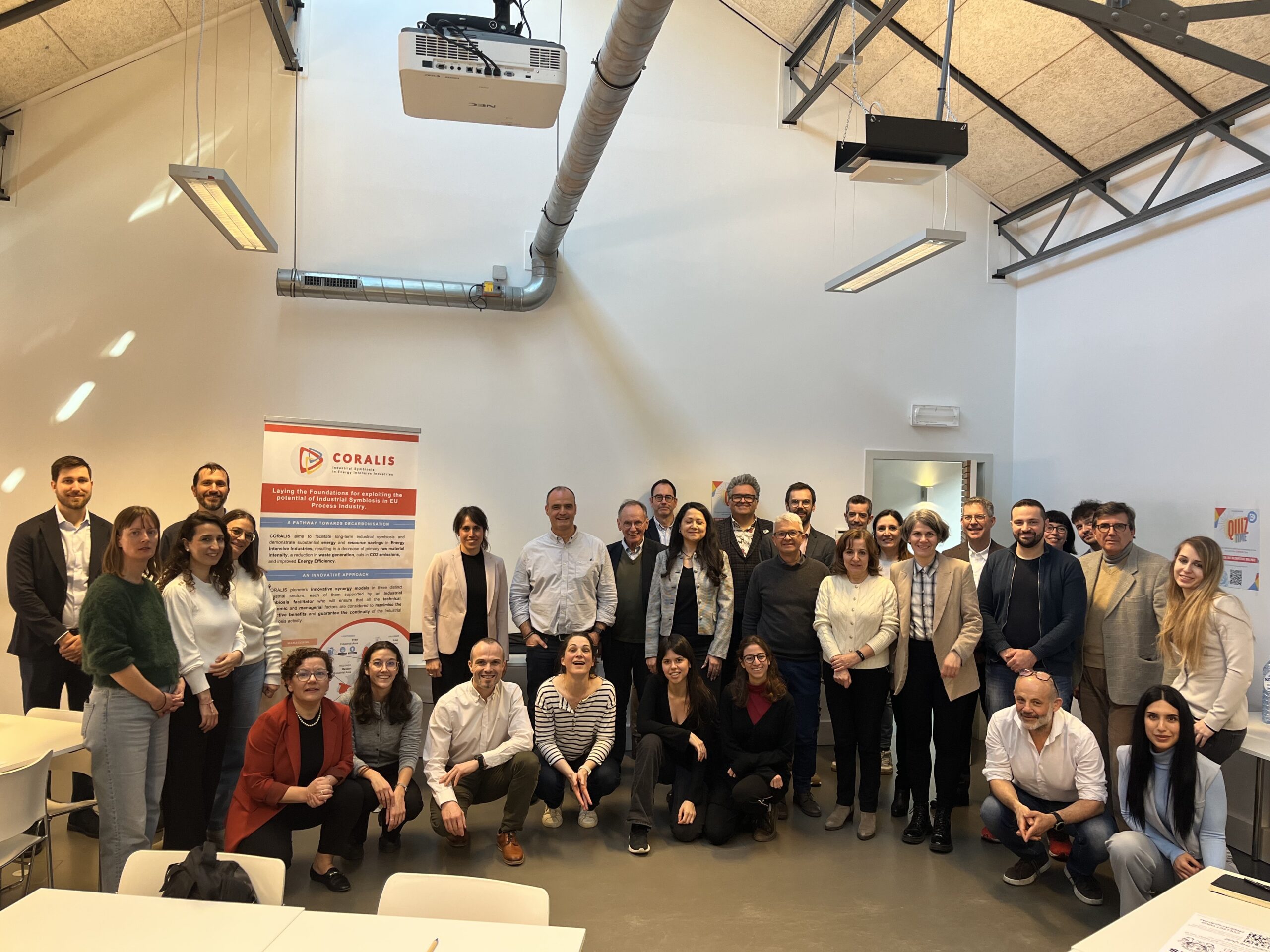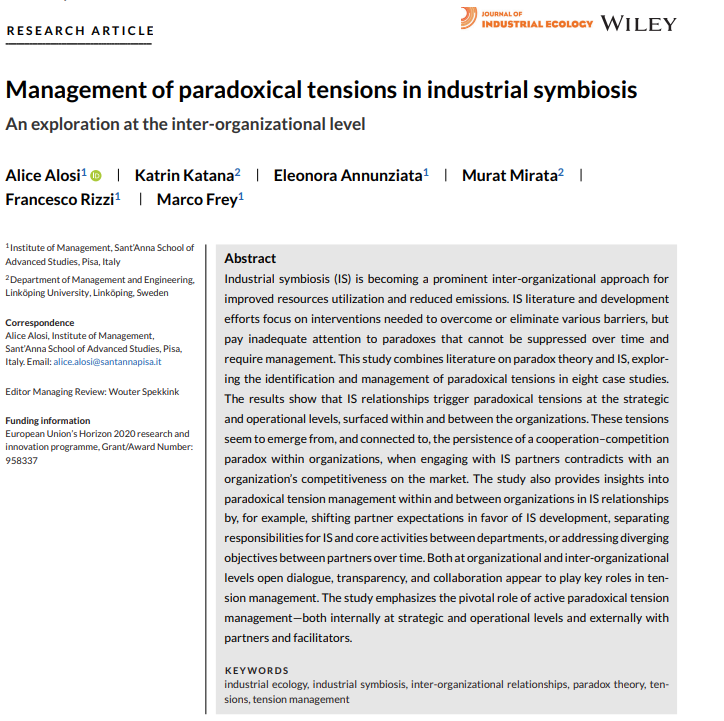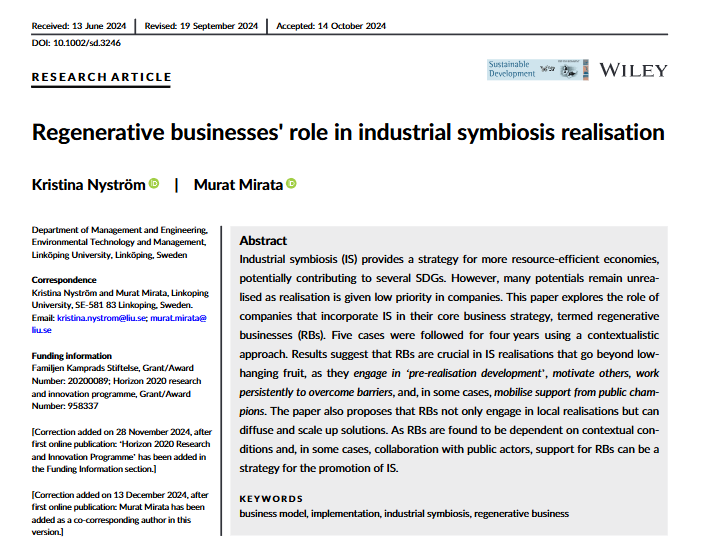PROJECT NEWS
New Publication Based on CORALIS: Sustainable Potassium Nitrate Production Through Industrial Symbiosis
Industrial symbiosis (IS) continues to prove its value as a strategy for enhancing sustainability and boosting economic performance across industrial sectors. A newly published study,
CORALIS work on recommendations for standardisation committees
The future of European industry is being shaped by the need for sustainability and resource efficiency, with industrial symbiosis (IS) emerging as a key driver.
CORALIS Handbook: Key Insights for Industrial Symbiosis Projects
The CORALIS project has played a pivotal role in advancing industrial symbiosis (IS) initiatives, offering invaluable guidance and practical tools for stakeholders involved in resource
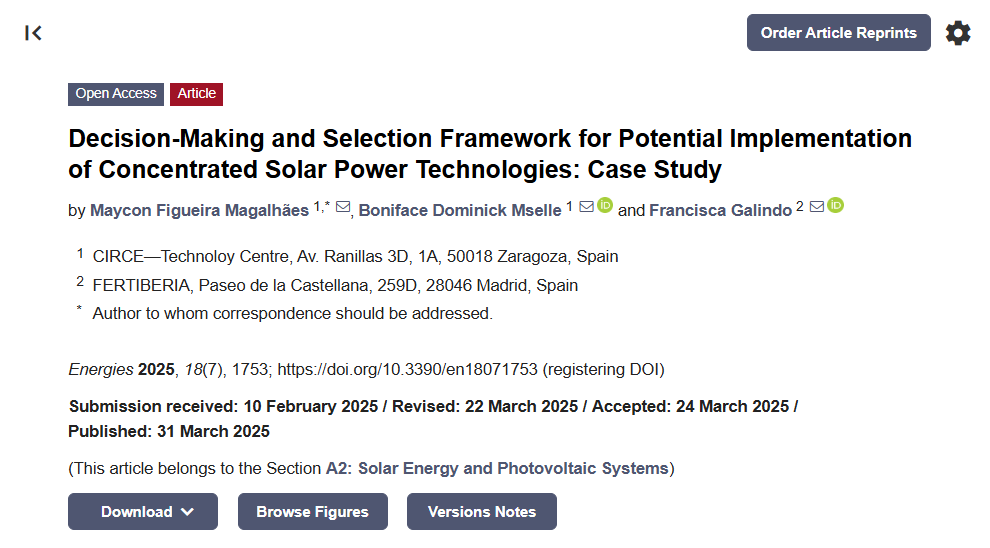 New publication based on CORALIS: Decision-Making and Selection Framework for Potential Implementation of Concentrated Solar Power Technologies: Case Study
New publication based on CORALIS: Decision-Making and Selection Framework for Potential Implementation of Concentrated Solar Power Technologies: Case StudyNew publication based on CORALIS: Decision-Making and Selection Framework for Potential Implementation of Concentrated Solar Power Technologies: Case Study
New publication based on CORALIS: Decision-Making and Selection Framework for Potential Implementation of Concentrated Solar Power Technologies: Case Study
The transition to sustainable industrial processes requires efficient renewable energy solutions. A newly published study, Decision-Making and Selection Framework for Potential Implementation of Concentrated Solar
Insights from CORALIS Learnings Webinar #5: Financing Initiatives for the Implementation of Industrial Symbiosis
On 14th of March 2025, our project partners from Linköping University (LiU) hosted its 5th learnings webinar, focusing on one of the most pressing challenges in the
New Publication Based on CORALIS: Environmental and Economic Benefits of Waste Heat Recovery as a Symbiotic Scenario in Sweden
Industrial symbiosis (IS) is increasingly recognised as a key strategy for enhancing resource efficiency and reducing environmental impact. A newly published study, "Environmental and Economic
New publication based on CORALIS: A Risk Management Framework to Enhance Environmental Sustainability in Industrial Symbiosis Ecosystems
Industrial symbiosis (IS) fosters collaboration between industries to exchange materials, energy, water, and by-products. By optimising resource use and reducing waste, IS contributes to both
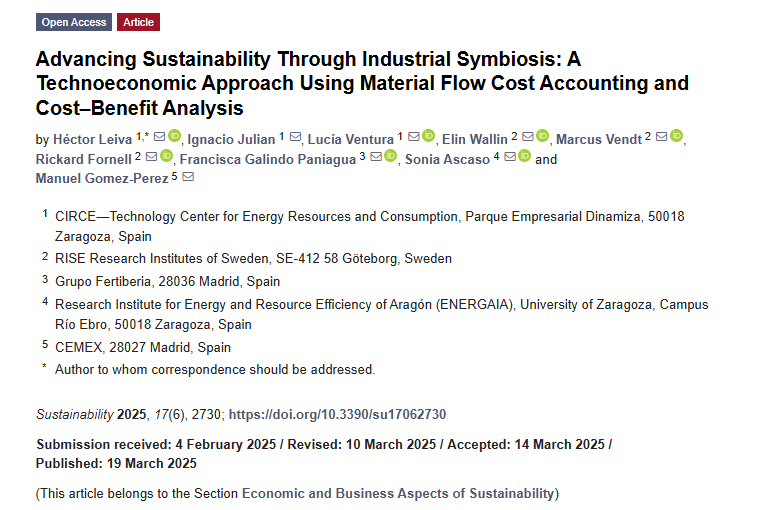 New Publication based on CORALIS: Advancing Sustainability Through Industrial Symbiosis: A Technoeconomic Approach Using Material Flow Cost Accounting and Cost–Benefit Analysis
New Publication based on CORALIS: Advancing Sustainability Through Industrial Symbiosis: A Technoeconomic Approach Using Material Flow Cost Accounting and Cost–Benefit AnalysisNew Publication based on CORALIS: Advancing Sustainability Through Industrial Symbiosis: A Technoeconomic Approach Using Material Flow Cost Accounting and Cost–Benefit Analysis
New Publication based on CORALIS: Advancing Sustainability Through Industrial Symbiosis: A Technoeconomic Approach Using Material Flow Cost Accounting and Cost–Benefit Analysis
Industrial symbiosis (IS) enhances resource efficiency by enabling industries to exchange waste materials and energy flows. However, ensuring the economic viability of these exchanges is
CORALIS final conference marks the project’s successful conclusion (19.03.2025)
The final conference of the CORALIS project took place on Wednesday 19th March 2025 in Brussels, Belgium, bringing together stakeholders, partners and experts to celebrate
CORALIS in Brussels for its last General Assembly (18.03.2025)
On Tuesday 18th March, the CORALIS consortium gathered in Brussels for the last General Assembly meeting of the project to discuss key milestones, final results
New Publication based on CORALIS: Managing Paradoxical Tensions in Industrial Symbiosis
Industrial symbiosis (IS) is increasingly recognised as a powerful strategy for optimising resource use and reducing emissions. However, while much attention has been given to
New publication based on CORALIS: “Regenerative Businesses’ Role in Industrial Symbiosis Realisation”
Industrial symbiosis (IS) offers a powerful approach to resource efficiency and circular economy transformation, yet many of its opportunities remain unrealised due to low prioritisation


